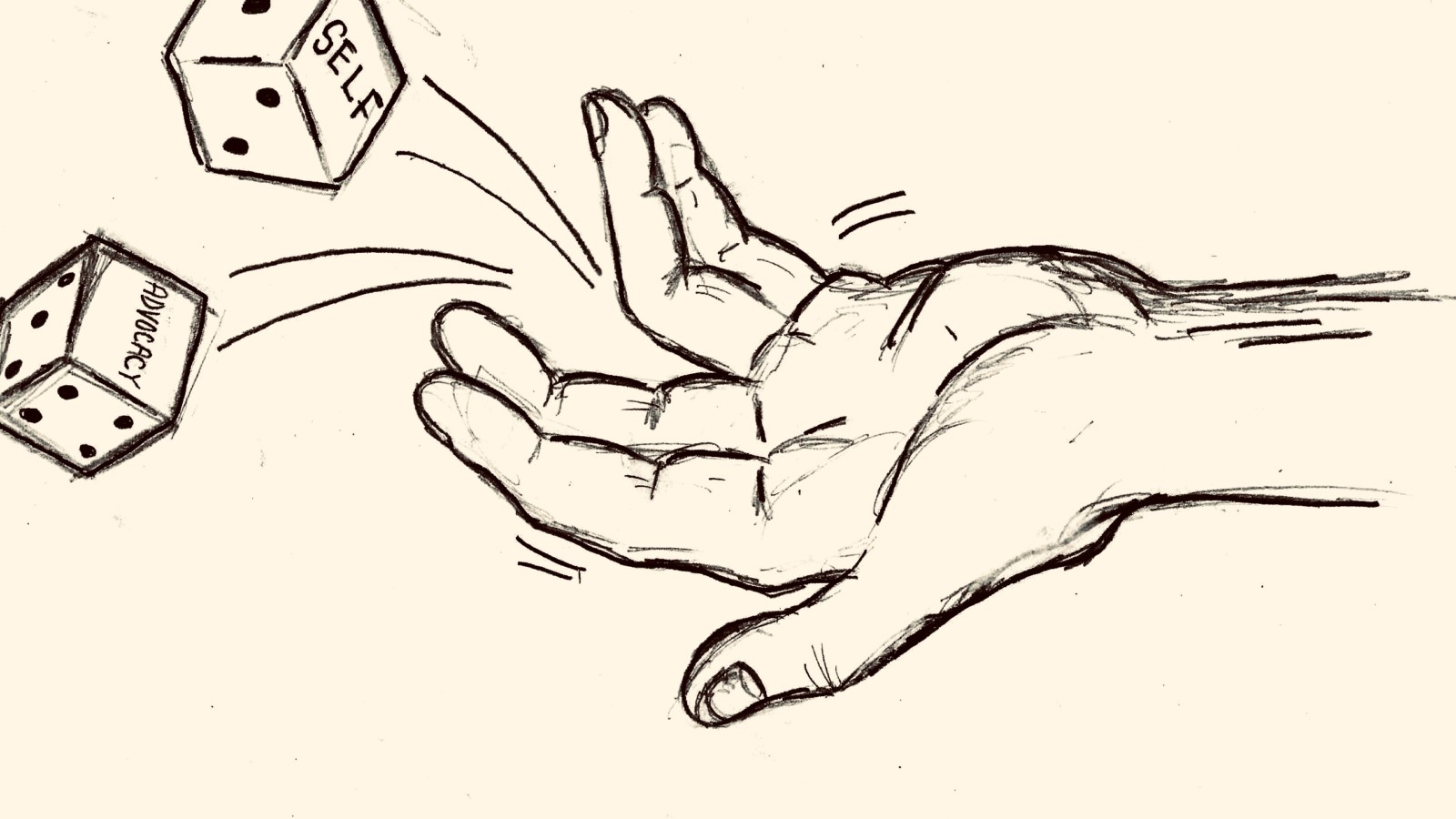When I asked Patti Smith about self-advocacy at her book signing for Year of The Monkey, I’ll never forget the broadening of her face as she said, “You already know.” All her following words disappear into the next book she’d sign. “It’s compassion, the people you surround yourself with… you already know,” she repeats.
Her magnified eyes gripped me. I felt a sort of shock twist up my spine like tree roots. I looked at her from the person behind me and said, “In my heart I know.”
Bumbling around New York City a couple hours earlier, I was reckoning with my own idea of self-advocacy, “If I’m too nervous to ask Patti Smith about self-advocacy then I wouldn’t really be advocating for myself.” I spoke with loose, flailing hands to Lex–a friend who (at the time) recently moved from the UK to the Jersey Shore. As they settle into their new home, Lex transcends. They love it here.
Versus Lex, in living on the Jersey Shore, I don’t always feel like I’m doing the best for myself. “Something good must have come out of this town, you’re here,” said Lex. And I’ll smile and give them a hug wondering where I will end up on this journey. Maybe Lex and I will switch places, I finding home in the UK.
Western worlds are so old they are compromised by their own stubborn age. Nevertheless, America is so young, its adolescence seems incorrigibly problematic. The softest comfort sits as a rendering fat on the surface of an exhausted America—compliance.
Compliance is easy. We are trained for it. We go to American public school as factory cows for the war machine to pump our milk and sell it for profit. Only so few cows advocate for themselves. Only so few cows say no to the machine and I believe this is why change happens so slow. The beginning of change starts with the self-advocate and that’s not always an easy path to pave.
“It’s a game,” said Lex’s friend Candice. “New York is a game. You either play or get left behind.” They are talking about earlier this week, the moment they arrived in New York. They speak of never having a moment of awe. Nothing captivating their senses to enrich this idea of New York City. It was just New York. Candice writes poetry, they are 24 and speak with a rich English accent, laughing in the world rather than at it. This was the first time I met Candice. Traveling to places that fill them, Candice’s advocacy held like a light in their soul. I lived in their space for just a night and felt their self assured fires burning to live life for the randomness that existence is.
This topic of self-advocacy seems to align with our health and our perception of self. I believe the faces we come in contact with act as mirrors of the mind. Viven Siegel, Ph.D in Genetics of University of California, San Francisco writes for American Society for Cell Biology (ASCB) about self-advocacy as it applies to gender stereotypes in an article, “Self-Advocacy: Why It’s Uncomfortable, Especially for Women, and What to Do About It”. Siegel details how self-advocacy can churn successful based on the binary genders of man and woman.
Siegel shares the common tale of the gender pay gap. The source of this disparity can stem from the employer, but in her story the male interviewee advocates for higher pay whereas the female interviewee does not: “A self-advocating argument made by a woman will be seen as more self-promoting, even aggrandizing, then the same argument made by a man. Second, the social cost of resisting gender stereotypes is being liked less by both men and women.”
Siegle suggests that people who have less privilege, in this case women, need back up when it comes to advocacy. If cis-straight white women have the most privilege below cis-straight white men, then I project this social cost of resisting and self-advocacy widening as identities diversify from those those that privilege from the oppression of others. For example, men can afford to be compliant toward the gender pay gap because it doesn’t directly affect them, but when men advocate for the self-advocating woman, change happens faster. Privilege can be seen as a ladder but it is also very much a web since we are all, in some way, privileged and oppressed. For example if the man advocating with the women is a transgender man, then both self-advocates may become targets. The likelihood is there, but the point is, there is power in numbers and there is power in knowing where you are privileged and where you are oppressed.
Patti Smith was right–I do know what self-advocacy is. The self-advocate lives in perpetual activism for self, for others and/or the silenced. Swinging into modern day politics where the airs of privilege stare compliant and hateful to the equal rights of people. Self-advocacy is showing up a screeching banshee even when the waves of discriminatory rejection tumble and toil. Self-advocacy is finding a home in people that stand in community with you, with shared experiences, and/or a desire for change in life that plays with the role of a dice.


